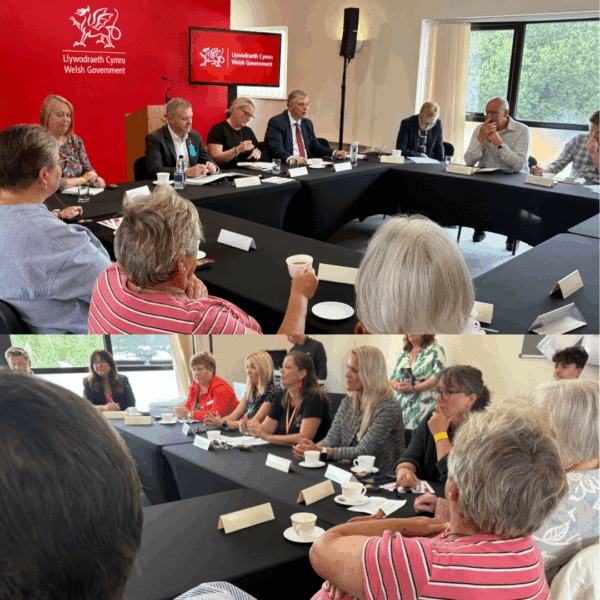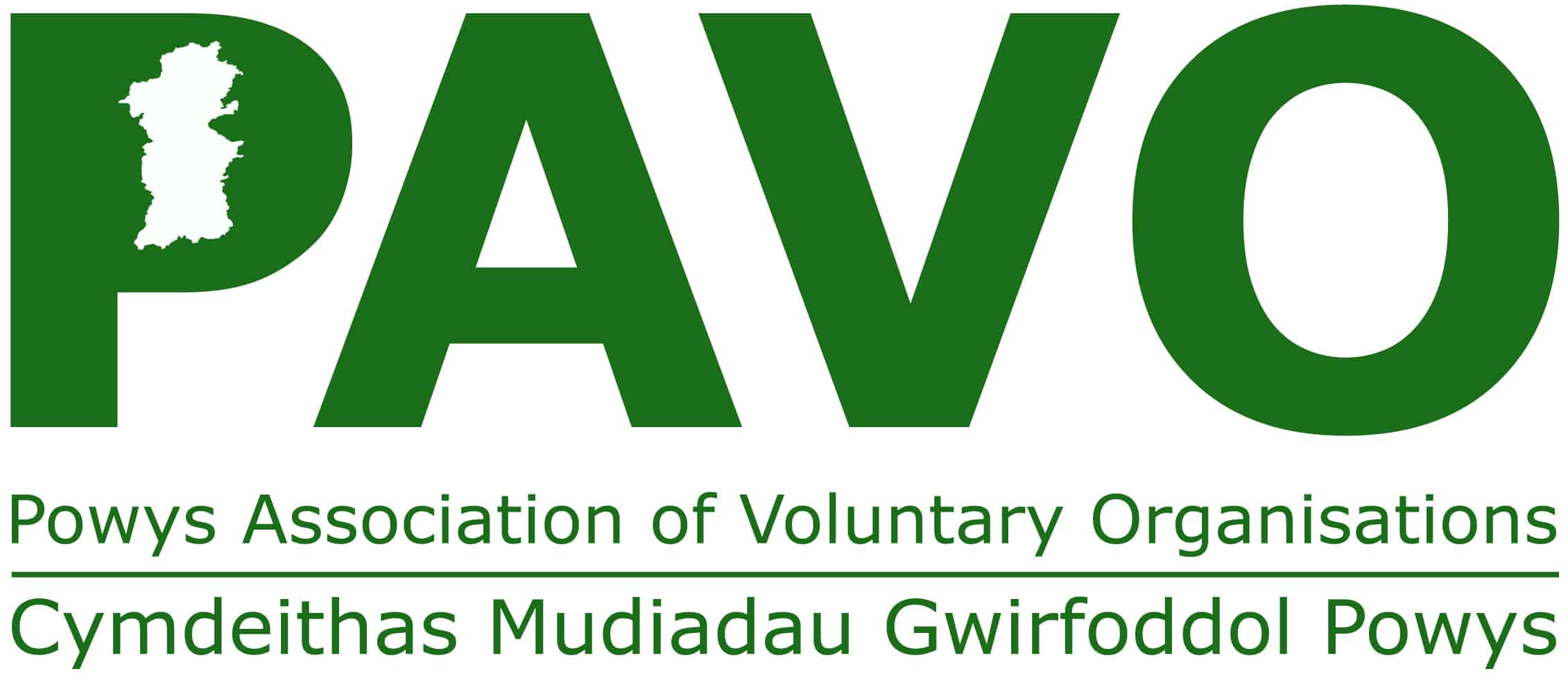Updates from the Royal Welsh Show 2025: Third Sector Under Pressure

Two roundtables at this year’s Royal Welsh Show brought together leaders from across the voluntary sector, government, and our communities to explore the opportunities and challenges facing charities and community organisations in Wales.
Key Insights:
- The voluntary sector is under pressure, facing rising demand, falling donations, and stretched volunteers
- Reaching more diverse trustees and volunteers remains a priority, with digital recruitment showing promise
- Charities need more sustainable funding models
- Early intervention, community-driven solutions, and easy access to support are vital, especially in rural areas, reinforcing the vital role of outreach projects like the Farming Fit initiative
- Farming and rural communities face unique challenges, from hidden caring responsibilities to stigma around seeking help,
- Stronger collaboration is essential
Charity Commission Roundtable
The Charity Commission’s Chief Executive, David Holdsworth, hosted a roundtable to examine the sector’s biggest challenges and how organisations can adapt and thrive. The discussion ranged from trustee diversity to financial resilience.
Commission research shows that while word-of-mouth remains the most common recruitment route, when trustee roles are advertised digitally, applicant diversity improves – roughly 51% women, 49% men, and 23% from ethnic minority backgrounds. (Read the full report here)
- 94% of trustees would recommend the role
- Although 70% of trustees are over 60, they bring valuable time and experience
Attendees explored how to better integrate younger trustees, as some boards still struggle to treat them as equal members.
The discussion also explored how, for instance, civil servants are entitled to one day of volunteering leave per year. The Commission can support anyone finding it difficult to access the entitlement.
- Volunteering can be a consideration in promotions and the honours system, where candidates are asked about their community contributions.
The biggest concern was financial sustainability. Charities are facing a “perfect storm” of rising demand – between 3% and 9% of the UK population has accessed charity support, falling donations, and a £2.5 billion reduction in reserves.
Funding applications have surged, with AI-generated applications up 300%, forcing some schemes to become invite-only. While overall funding levels remain the same, funds are being distributed across fewer organisations over longer periods, threatening the survival of smaller charities. The Charity Commission is calling for staggered funding allocations to ease the strain.
Practical solutions suggested included:
- Charities merging back-office functions to cut costs while preserving each charity’s identity
- Encouraging philanthropic giving through, for example, better advice from wealth managers
- The Welsh Council for Voluntary Action (WCVA) announced a new loan product to help charities bridge funding gaps
Welsh Government Roundtable

A second roundtable, hosted by Jeremy Miles MS, Cabinet Secretary for Health and Social Care, asked a central question:
How can we help people in Wales stay well, live independently, and get the support they need, when they need it?
The discussion brought together local leaders, third sector organisations, and people with lived experience.
Speakers Bethan Jones Edwards (National Office for Care and Support) and Albert Heaney (Chief Social Care Officer for Wales) stressed the need for services focused on “what matters” to individuals:
- Support must be accessible, sustainable, and genuinely life-improving
Debbie Brooks (Care and Repair in Powys) shared how the organisation supported 900+ people in a year, many of them isolated older residents. By engaging people at farmers markets and agricultural shows, they reached those less likely to seek help otherwise.
One Powys resident, whose quality of life was negatively impacted by health conditions, shared her experience with the roundtable: after a council referral to Care and Repair in Powys, she received a home assessment, grant support, and assistance completing DWP forms through Age Cymru Powys. The result: access to an allowance that paid for domestic help, improving her independence and well-being.
Ben Eaton (Llais Cymru) noted three recurring concerns:
- Better communication between services
- Easier access to information
- Shorter waiting times for local support
Clair Swales (PAVO CEO) emphasised the importance of early intervention but warned that the third sector, while deeply embedded in local communities, is under immense strain:
- Volunteers are stretched
- Funding is precarious – with an increasing reliance on the third sector, funding and support needs to be sustainable
- The sector is often treated as “third rate” despite its crucial role
- Budget cuts are heightening tensions between statutory and third sector providers
Further contributions highlighted specific rural challenges:
- Sarah Lewis (Wales YFC): Carers in farming communities often face delays accessing local support, with some finding it easier to get help in Shropshire than in North Powys. Welsh-language support is often key to building relationships
- Lowri Price (NFU Cymru): Young people juggling farm work and caring for parents or grandparents face heavy pressures
- Kate Miles (DPJ Foundation): Farming communities, while resilient, are often reluctant to seek help until crisis hits. Regular outreach at markets and shows is vital to break stigma and build trust
